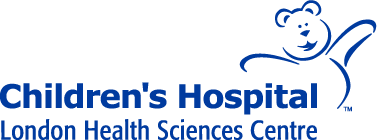Staying informed and involved in your child’s care helps create a more positive and supportive hospital experience. We offer a wide range of services for children and support for patients and families to meet your family’s unique needs, whether that’s emotional, spiritual, cultural, or practical support. This includes everything from child life specialists and art therapy to interpretation services, legal help, and access to a Paediatric Family Resource Centre.
We’re also proud to offer dedicated programs like our Youth Indigenous Wellness program and Black Health services, designed to support children and families in ways that respect and reflect their identities and communities.
- Learn more about your child’s care team.
- Learn more about the Comfort Promise, our commitment to ensuring every child receives the highest level of comfort and pain management during their care.
- Learn what to expect, how to prepare and how to access tools for a Virtual Care appointment.
I’m looking for…
Services for patients Resources for families
Getting involved in your child’s care
We see families as partners in care. To help us understand your child’s needs, please share any helpful personal details and let us know if a care plan or community service is already in place. Communication builds trust and contributes to the partnership between families and caregivers.
Medications
- Bring the medications your child is currently prescribed by your family physician or paediatrician, or a list of medications and your pharmacy’s phone number. This includes any over-the-counter, medications and vitamins, as well as creams, lotions, inhalers, and eye drops.
- Inform your child’s nurse and physician of any medications which have recently been stopped, and any allergies or adverse reactions to foods, medications, or environmental factors.
- Medications prescribed and approved for use at LHSC will be supplied while in hospital.
- Any medications from home should not be taken unless approved by your child’s care team.
- If you receive a list of medications before leaving LHSC, ensure this list is shared with your family physician or paediatrician, as well as your home pharmacy.
- If you have questions about your child’s medications, a pharmacist is available to come and answer your questions or address any concerns. Ask your child’s nurse to contact a pharmacist on your behalf.
- If your child is on several medications, a medication calendar can be prepared by a pharmacist and reviewed with you prior to discharge.
How you can support your child
- Write down questions or observations about your child and share them with your team. Do not hesitate to ask to have something explained again or in a different way.
- Ask for explanations, benefits, risks or side effects of any medicines, tests, treatments, or procedures.
- Be honest with your child. Explain to your child why hospitalization is needed and what the doctors and nurses will do. Staff members are available to help you prepare your child for what they may see, hear, feel, and experience.
- Encourage your child to ask questions and express feelings.
- Please share your cultural customs or religious beliefs so that we can be sensitive to your needs.
Family Participation in Bedside Shift Change Report
We invite you to take part in your child’s bedside shift change report. This is when nurses share updates during a shift change, and it’s a chance for you to hear about your child’s care, ask questions, and share any information you think is important. Your input helps us give the best care possible.
During bedside shift change report, which can take three to five minutes, you can expect the following:
- The nurse starting their shift will introduce themselves
- The nurses will review your child’s plan of care
- The nurses will complete mandatory safety checks
- The nurses will ask you if you have any questions or any additional information to share
You will be encouraged to participate in a way that works for you and your child. Prior to leaving the room, your child’s nurse will let you know when you can expect them to return.
Visit the Patient Safety at Children’s Hospital page for more information and resources to help you stay informed, speak up, and take an active role in the care of you or your loved one.



